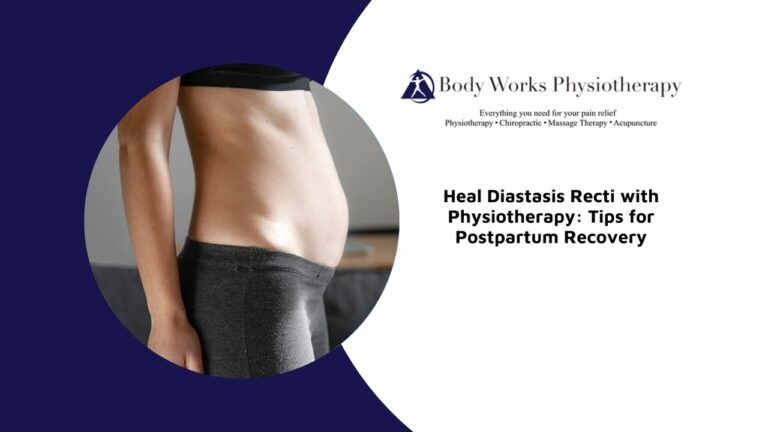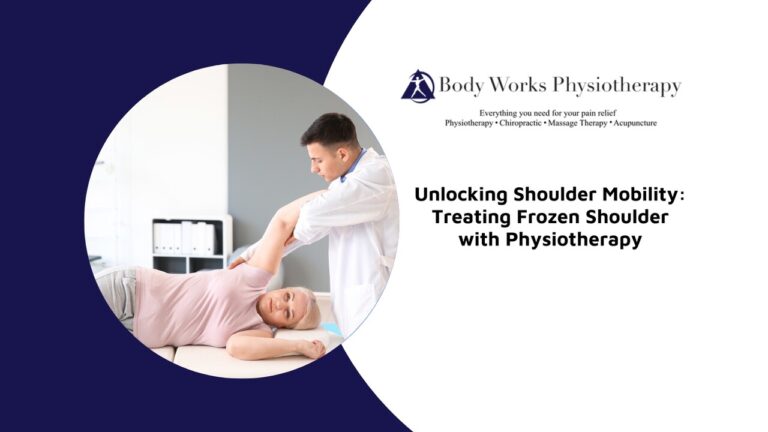
Shoulder pain can significantly impact daily life, making even simple tasks like lifting, reaching, or carrying objects challenging. Whether caused by injury, overuse, or surgery, shoulder issues require targeted care to restore mobility and reduce discomfort. Physiotherapy offers an effective, non-invasive solution to address shoulder pain, providing personalized exercises and techniques designed to promote healing, improve strength, and prevent future injuries. By focusing on the root causes of shoulder pain, physiotherapy helps people regain function and confidence in their daily activities.
The Role of Physiotherapy for Shoulder Pain
Physiotherapy is essential for managing and relieving shoulder pain by targeting its root causes and providing a structured recovery plan. It focuses on reducing pain, restoring function, and preventing future injuries.
- Effective Pain Relief: A combination of manual therapy, targeted exercises, and therapeutic techniques like heat therapy are used to reduce pain, alleviate inflammation, and relax tense muscles, providing immediate and lasting relief.
- Improved Mobility and Flexibility: Joint mobilizations and stretching exercises help restore range of motion, addressing stiffness and allowing for smoother, pain-free shoulder movement.
- Strength and Stability: Weak or imbalanced muscles can contribute to recurring pain. Physiotherapy uses progressive strengthening exercises, such as resistance bands and functional movements, to build shoulder stability and prevent future injuries.
- Addressing Posture and Movement: Poor posture and improper techniques often strain the shoulder joint. Physiotherapy incorporates ergonomic corrections and body mechanics training to minimize stress on the shoulder during daily activities.
- Prevention and Education: Clients learn techniques to avoid re-injury, including proper lifting, stretching, and strategies for reducing strain, ensuring long-term shoulder health.
This comprehensive approach not only alleviates pain but also equips you with tools for lasting recovery, allowing you to return to daily activities with confidence and reduced risk of recurrence.
Common Shoulder Conditions Physiotherapy Can Treat
Physiotherapy effectively treats a wide range of shoulder conditions, including:
- Rotator Cuff Injuries: Physiotherapy strengthens the stabilizing muscles and tendons of the shoulder joint, restoring movement and reducing pain through targeted exercises and manual techniques.
- Frozen Shoulder (Adhesive Capsulitis): This condition causes stiffness and limited movement. Physiotherapy uses mobility exercises, stretching, and joint mobilizations to gradually restore flexibility and ease discomfort.
- Shoulder Impingement: Often linked to overhead movements, impingement is managed with strengthening exercises, posture correction, and inflammation reduction techniques.
- Bursitis: Physiotherapists reduce pain and swelling in the inflamed bursa through gentle stretches, strengthening routines, and therapies like shockwave therapy to aid recovery.
- Tendinitis: Overuse-related tendon inflammation is treated with soft tissue therapy, progressive strengthening, and education on proper movement patterns to prevent recurrence.
- Dislocations: Rehabilitation focuses on stabilizing the shoulder joint, strengthening supporting muscles, and retraining safe movement patterns to avoid future dislocations.
- Arthritis-related Shoulder Pain: Physiotherapy is also beneficial for arthritis-related shoulder pain and post-surgical rehabilitation. It reduces arthritis symptoms like pain and stiffness while improving mobility and strength, particularly during post-surgical recovery.
Physiotherapists are skilled in addressing the unique aspects of each condition, ensuring that treatments are safe and effective for both acute and chronic shoulder issues.
How Physiotherapy Helps Prevent Shoulder Injuries
Yes, physiotherapy can be instrumental in preventing future shoulder injuries. Through targeted strengthening and flexibility exercises, physiotherapy addresses muscle imbalances and joint stability, reducing the risk of re-injury. Additionally, physiotherapists educate clients on proper posture, body mechanics, and techniques for avoiding shoulder strain during daily activities and sports, making prevention an integral part of your rehabilitation plan.
Physiotherapy for Shoulder Pain: The Role of Exercise
Physiotherapy for shoulder rehabilitation includes a combination of mobility, strength, and flexibility exercises tailored to your injury. Common exercises may involve:
- Gentle Stretching: These exercises increase range of motion by gradually loosening tight muscles and improving joint flexibility. Examples include pendulum swings and cross-body stretches.
- Resistance Band Exercises: Resistance bands are used to strengthen the muscles surrounding the shoulder joint. Common exercises include external and internal rotations, scapular retractions, and lateral raises, all of which help rebuild stability and support.
- Functional Movements: These movements mimic everyday activities to restore shoulder balance and stability. Exercises like wall push-ups and overhead reaching tasks help improve functional strength.
- Isometric Exercises: For individuals experiencing pain, isometric exercises allow for muscle strengthening without significant joint movement. Examples include pressing the hand against a wall or surface in different directions to engage the shoulder muscles.
- Postural Exercises: Poor posture can strain the shoulder joint. Specific exercises focus on improving alignment, such as scapular stabilization exercises and thoracic spine stretches.
- Progressive Strength Training: As recovery advances, exercises like light dumbbell presses or rowing movements are incorporated to build overall shoulder strength and endurance.
- Range-of-Motion Drills: These include techniques such as using a cane or pulley system to gently guide the shoulder through its natural range of motion, ensuring flexibility and movement are fully restored.
- Proprioceptive Training: To improve coordination and joint awareness, exercises like ball tosses or balance board activities may be added, especially for athletes or individuals needing advanced shoulder control.
Depending on your condition, your physiotherapist may add specific exercises to address muscle imbalances and prevent future strain.
Physiotherapy Sessions for Shoulder Pain: What to Expect
During physiotherapy sessions for shoulder pain, each visit is designed to assess your progress and address your specific needs, ensuring a comprehensive approach to recovery. Here’s what you can typically expect:
- Thorough Assessment: Your physiotherapist will begin with a detailed evaluation, including range-of-motion tests, strength assessments, and functional movement analysis to identify the root causes of your pain and limitations.
- Personalized Treatment Plan: Based on the assessment, a customized treatment plan is created to target your specific condition and recovery goals.
- Guided Exercises: You’ll be introduced to a range of exercises tailored to your injury or condition, including stretches, strengthening movements, and mobility drills to improve joint function and muscle support.
- Manual Therapy: Hands-on techniques, such as joint mobilizations, soft tissue massage, or myofascial release, may be used to relieve pain, reduce stiffness, and promote mobility.
- Therapeutic Modalities: Additional treatments like shockwave therapy and heat or ice therapy may be incorporated to manage pain and inflammation and improve healing.
- Posture and Movement Training: Education on proper posture and movement patterns to minimize strain on the shoulder and prevent further injury is often included in sessions.
- Progress Monitoring: Each session builds on the previous one, with adjustments made to your exercises and techniques as you improve. Regular re-evaluations ensure the treatment plan evolves with your recovery.
- Home Exercise Program: Your physiotherapist will provide exercises to practice at home between sessions, reinforcing progress and promoting consistent improvement.
By integrating these elements, physiotherapy sessions create a structured, supportive environment for addressing shoulder pain and regaining strength, mobility, and confidence in daily activities.
How Long Does It Take to Recover From a Shoulder Injury With Physiotherapy?
Recovery time for a shoulder injury varies based on the injury’s severity and the individual’s overall health. Minor shoulder strains may improve within a few weeks, while more complex injuries, such as rotator cuff tears or post-surgical recovery, may take several months. Typically, people see significant improvement in 6 to 12 weeks with consistent physiotherapy, but your therapist will tailor a treatment plan to best meet your specific recovery goals.
Pain Relief and Enhanced Mobility
If shoulder pain is limiting your daily activities, physiotherapy offers a proven way to recover strength and mobility. At Body Works Physiotherapy in Scarborough, our skilled team provides personalized treatment plans to address your unique needs, helping you relieve pain, restore function, and prevent future injuries. Take the first step toward a healthier, pain-free shoulder—schedule your session with us today and start your journey to recovery.





